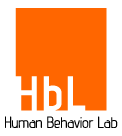Human behavior refers to the range of actions, reactions, and interactions humans exhibit. It encompasses physical, mental, and emotional activities influenced by various factors, including genetics, environment, culture, and individual psychology.
Key Aspects of Human Behavior
- Physical Actions: These are observable behaviors such as walking, talking, or any motor activity. They can be measured and studied through direct observation or physiological sensors.
- Mental Processes: These include thoughts, perceptions, and cognitive functions that drive decision-making and problem-solving. Cognitive theories emphasize the role of internal mental processes in shaping behavior.
- Emotional Responses: Emotions play a crucial role in influencing human behavior. They can drive actions and decisions, often interacting with cognitive processes to shape how individuals respond to different situations.
Influencing Factors
- Genetics and Biology: Innate biological factors can predispose individuals to certain behaviors or responses.
- Environment and Culture: Environmental stimuli and cultural norms significantly shape behavior by providing context and expectations for how individuals should act.
- Social Influences: Social environments and interactions can impact behavior through mechanisms such as social learning and conformity.
- Personal Beliefs and Attitudes: Individual attitudes, values, and beliefs are critical in determining how people behave in various situations
